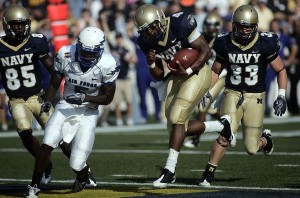What It Truly Means to be a “Team Player” 1
 Many coaches and sports enthusiasts talk about being a good “team player” but aren’t always clear about what exactly that means. Having the right skills and attitudes when working with others on a team can mean the difference between just being another member of that team and being a true team player. When your entire team is composed of true team players, then the abilities of your group are transformed and expanded. You have the opportunity to develop these skills and attitudes and help foster them across your entire team.
Many coaches and sports enthusiasts talk about being a good “team player” but aren’t always clear about what exactly that means. Having the right skills and attitudes when working with others on a team can mean the difference between just being another member of that team and being a true team player. When your entire team is composed of true team players, then the abilities of your group are transformed and expanded. You have the opportunity to develop these skills and attitudes and help foster them across your entire team.
The Right Attitude
One of the cornerstones of being a team player is having the right attitude. This usually means being positive at all times. Most people can be positive when times are good, but those who are really team players remain positive when things are tough, after failure and when things go wrong. They are able to share this positive attitude with others and keep them motivated through the hard times. Whether your team wins or loses, your stabilizing attitude helps them see the positives or lessons that can come out of the experience.
The attitude of being a true team player is also displayed in how you relate to the accomplishments of others. When you are as excited about another player’s accomplishment as you would be for your own accomplishment, then you are starting to act like a team player. A true team player draws no distinction between themselves and their team. Every player’s accomplishment or skill is shared and celebrated.
Trust and Responsibility
A true team player is someone who has learned to balance the concepts of trust and responsibility with those around them. People come to trust a team player because they knew that person is going to be responsible and carry through. Real team players don’t try to do everything. They don’t try to play every position perfectly or promise, or expect, to carry the whole team. Instead, they balance what they do and understand their own limitations so they don’t take on what they won’t be able to finish or do well. This makes them more reliable and trustworthy. Other team members feel comfortable relying on them and depending on them.
On the flip side, a true team player is also capable of placing their trust in others and having confidence in their decisions and abilities. The true team player may act as a sort of mini-coach, recognizing the strengths and weaknesses in others on the team and helping them maximize those strengths while minimizing those weaknesses. This ability is critical to team strategy and cohesion. A team player is always practicing strategic thinking skills. They consider not just about what they themselves should do, but what everyone on the team should be doing.
Once another player’s role is set and their skills established, the true team player builds on that. Instead of trying to be the all-star, the true team player helps the entire team shine. In this way, the true team player exemplifies responsibility on both sides of the table. They are both responsible themselves and foster responsibility in those they play with. Read the rest of this entry →



